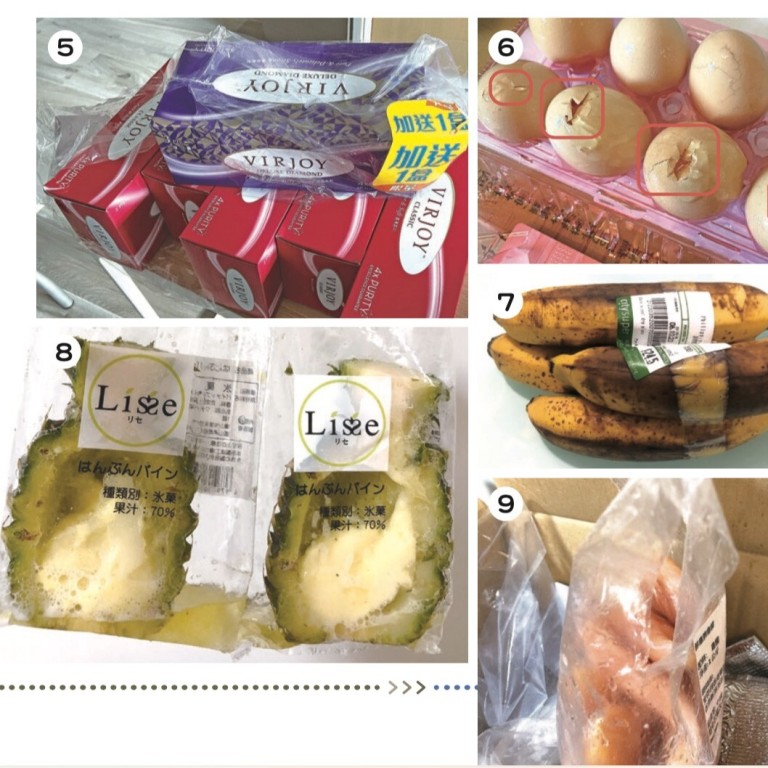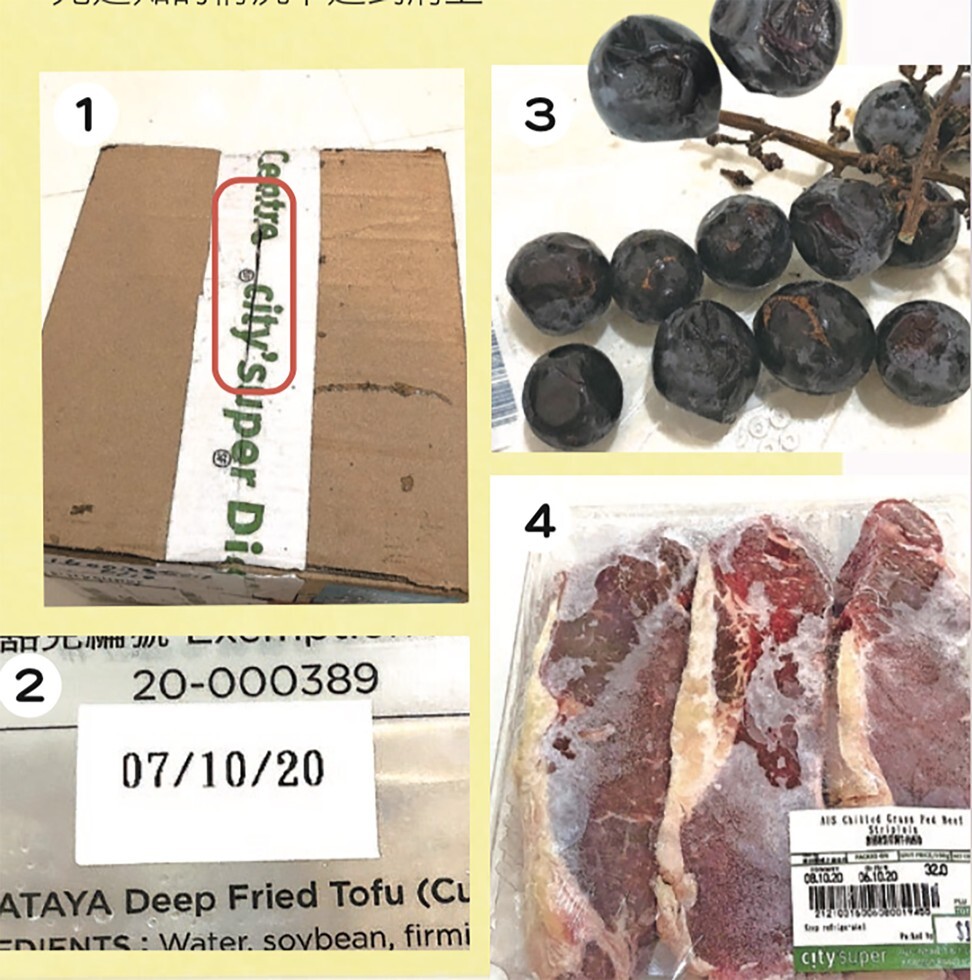
From blackened bananas to melted sorbet, Hong Kong’s perishable food deliveries fail to make the grade, watchdog says
- With residents increasingly ordering online amid the Covid-19 pandemic, complaints over grocery services have more than doubled
- Consumer Council notes properly storing food in transit necessary to prevent bacterial growth and spoilage
The investigation came as the number of complaints about unsatisfactory online grocery services surged in the first 11 months of the year, more than doubling to 952 cases, compared with 452 in the same period last year, according to the council.

Online delivery services have thrived due to social-distancing rules during the pandemic, leading the watchdog to assess the delivery performance of five local online grocery platforms: HKTVmall, Wellcome, ParknShop, City’super and Big Big Shop.
Staff from the Consumer Council posed as regular online shoppers and placed five orders from each retailer, with each consisting of 15 grocery items that included a range of fresh, frozen and pre-packaged foods and daily necessities.
A bundle of overripe bananas was already “blackened and leaking” when one of the grocery packages from City’super arrived, along with a pack of rotten grapes and a bag of frozen meat that had thawed out.
In other instances: ParknShop delivered boxes of cracked eggs in two different batches; Wellcome sent over a dismantled five-pack case of boxed tissue paper; while a tin of luncheon meat was dented in one of the packages from HKTVmall.

“There were also cases of missing items, orders mixed up with that of other customers, or delayed delivery after order confirmation, which ended with the cancellation of the order,” Victor Lui Wing-cheong, vice-chairman of the council’s research and testing committee, said at an online press conference on Tuesday.
“Not only does this defeat the purpose of online shopping, as customers expect convenience and speedy service, but it also causes additional nuisance and aggravation to customers in dealing with delivery issues.”
He added that operators needed to improve their delivery services, as online grocery shopping was becoming increasingly popular amid the pandemic, with customers choosing to stay at home more often.
Pasta sold in Hong Kong contains insect fragments, rodent hair and mould toxins
For the five orders placed through Big Big Shop, the deliveries were split across 17 different shipments. Within those batches, some items took as long as 26 days to arrive, and three shipments were eventually cancelled by the retailer without providing a reason.
While only four of the 17 batches from Big Big Shop were delivered on the scheduled day, the items received were poorly handled, including an entirely melted package of sorbet and an opened bag of frozen chicken fillets.
The Consumer Council urged online grocery operators to store food properly while in transit to prevent bacterial growth and spoilage.
Certain foods with potential health risks must always be stored at below 4 degrees Celsius or above 60 degrees during delivery, according to the Food Hygiene Code published by the Food and Environmental Hygiene Department.
Consumer Council study finds 83 per cent of sunscreens do not meet protective claims
TVB, the free-to-air broadcaster which runs Big Big Shop, said in a statement that the Covid-19 pandemic had led to a sudden surge in demand for online shopping, with a 500 per cent uptick in unit sales year on year that had overwhelmed its supply chain.
“The merchants and logistics provider are under immense pressure and challenges, resulting in delayed delivery and products not delivered in good condition,” it said. “As the sales platform, Big Big Shop takes responsibility and extends its apology to customers for any inconvenience.”
Meanwhile, orders placed through HKTVmall were delivered on time. Although cartons of fresh milk and soya milk were missing from one of the orders, HKTVmall was able to make a refund after an online form was filled out.
In its own statement, HKTVmall said all its frozen and fresh food deliveries were transported in trucks at temperatures of minus 18 degrees and 0 to 4 degrees, respectively.
Hong Kong watchdog warns portable air purifiers test poorly in real-life conditions
“The food will not be taken out of the car until it reaches the customer’s delivery address,” the company said. HKTVmall also requires deliverymen to put the food in an insulation bag and use a special device for the customer to sign off on the package.
In an emailed response to the Post, ParknShop said it had set up internal guidelines on packaging and delivery to ensure product quality. It would also arrange an exchange or refund for customers if they found faulty products in their orders.
“We check all the products again before delivering goods, and will immediately take out those with quality problems without any additional charge to the customer,” it said.
“Customers will receive an order confirmation email a few hours before delivery which confirms the number of goods to be received.”
Gilly Wong Fung-han, the council’s chief executive, stressed that online shopping platforms bear the responsibility of delivering quality goods and services to customers, and suggested they re-evaluate their logistics partners if their standards were not being met.
“The online shopping platforms have the responsibility to deliver [with] care products of reasonable quality to consumers,” Wong said, urging dissatisfied customers to take photos of the involved food items and report issues to the respective retailers immediately.
The Post has contacted City’super and Wellcome for comment.

